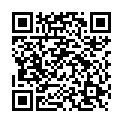|
|
|
| Module code: MAB.4.2.2.19 |
|
|
4V (4 hours per week) |
|
5 |
| Semester: according to optional course list |
| Mandatory course: no |
Language of instruction:
German |
Assessment:
Written exam and presentation
[updated 30.09.2020]
|
FT66 (P241-0156) Automotive Engineering, Bachelor, ASPO 01.04.2016
, semester 6, optional course, general subject
FT66 (P241-0156) Automotive Engineering, Bachelor, ASPO 01.10.2019
, semester 6, optional course, general subject
MAB.4.2.2.19 (P241-0156) Mechanical and Process Engineering, Bachelor, ASPO 01.10.2013
, optional course, specialisation
|
60 class hours (= 45 clock hours) over a 15-week period.
The total student study time is 150 hours (equivalent to 5 ECTS credits).
There are therefore 105 hours available for class preparation and follow-up work and exam preparation.
|
Recommended prerequisites (modules):
None.
|
Recommended as prerequisite for:
|
Module coordinator:
Prof. Dr. Marco Günther |
Lecturer:
Dipl.-Ing. Igor Golberg
[updated 09.09.2016]
|
Learning outcomes:
After successfully completing this module, students will be familiar with the essential elements and functionalities of current software programs, which are necessary to perform numerical flow simulations. They will be familiar with the principles and fundamentals of creating numerical meshes, setting up and performing flow simulations and the essential methods for evaluating results. They will be able to model simple flow problems independently using software, apply standard methods of calculation and interpret the results.
[updated 30.09.2020]
|
Module content:
Fundamentals and techniques for generating geometries and meshes (unstructured and structured) for numerical calculations, flow simulations using software tools from ANSYS (ICEMcfd, CFX, Fluent, Workbench), calculating incompressible flows, selecting and applying boundary conditions, visualizing and analyzing results, application based on practical real-world problems and examples such as porous media, intercoolers, heating of a brake disc during emergency braking.
[updated 30.09.2020]
|
Teaching methods/Media:
Lecture and supervised exercises on the computer.
[updated 30.09.2020]
|
Recommended or required reading:
Literature will be announced in the lecture.
[updated 30.09.2020]
|


